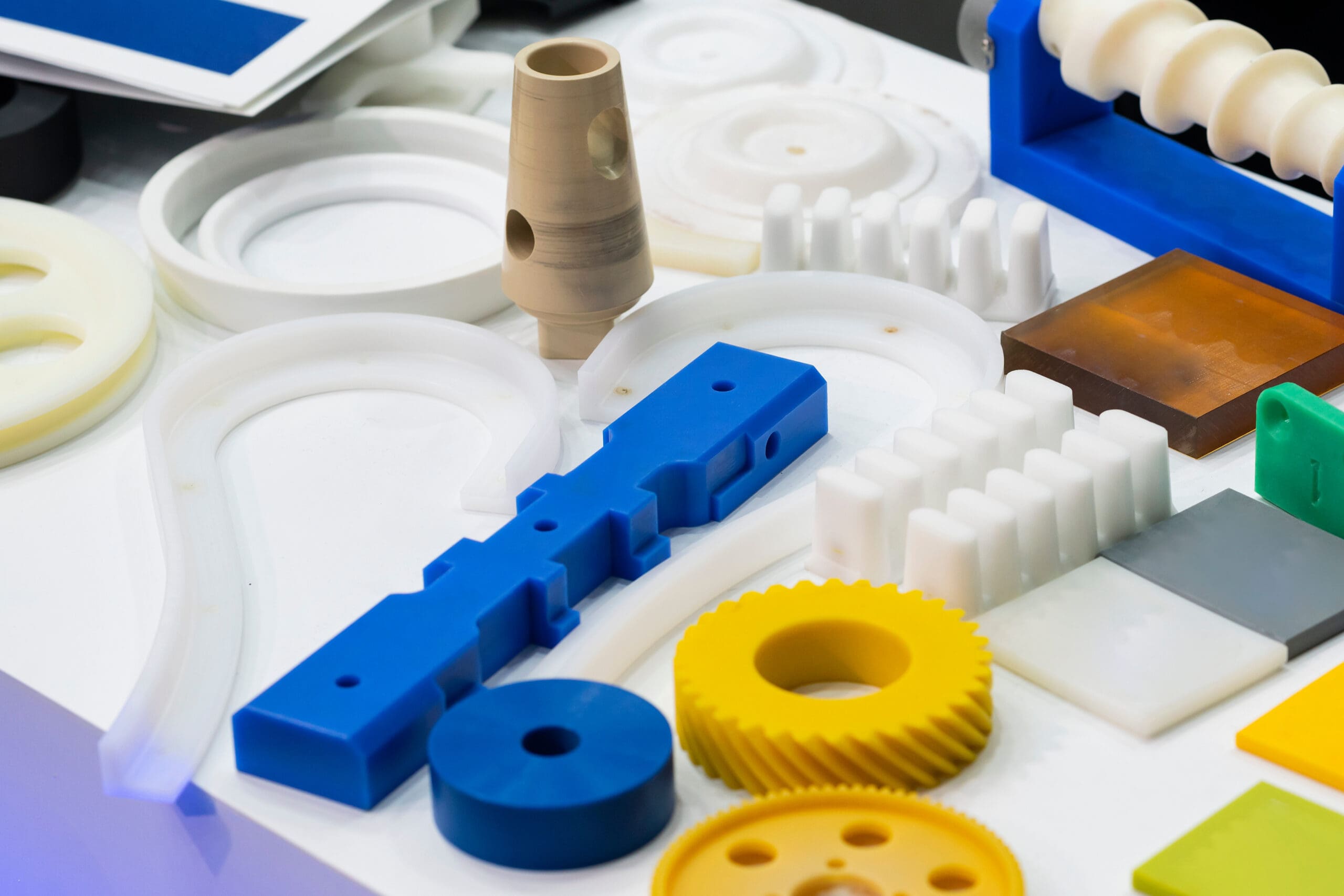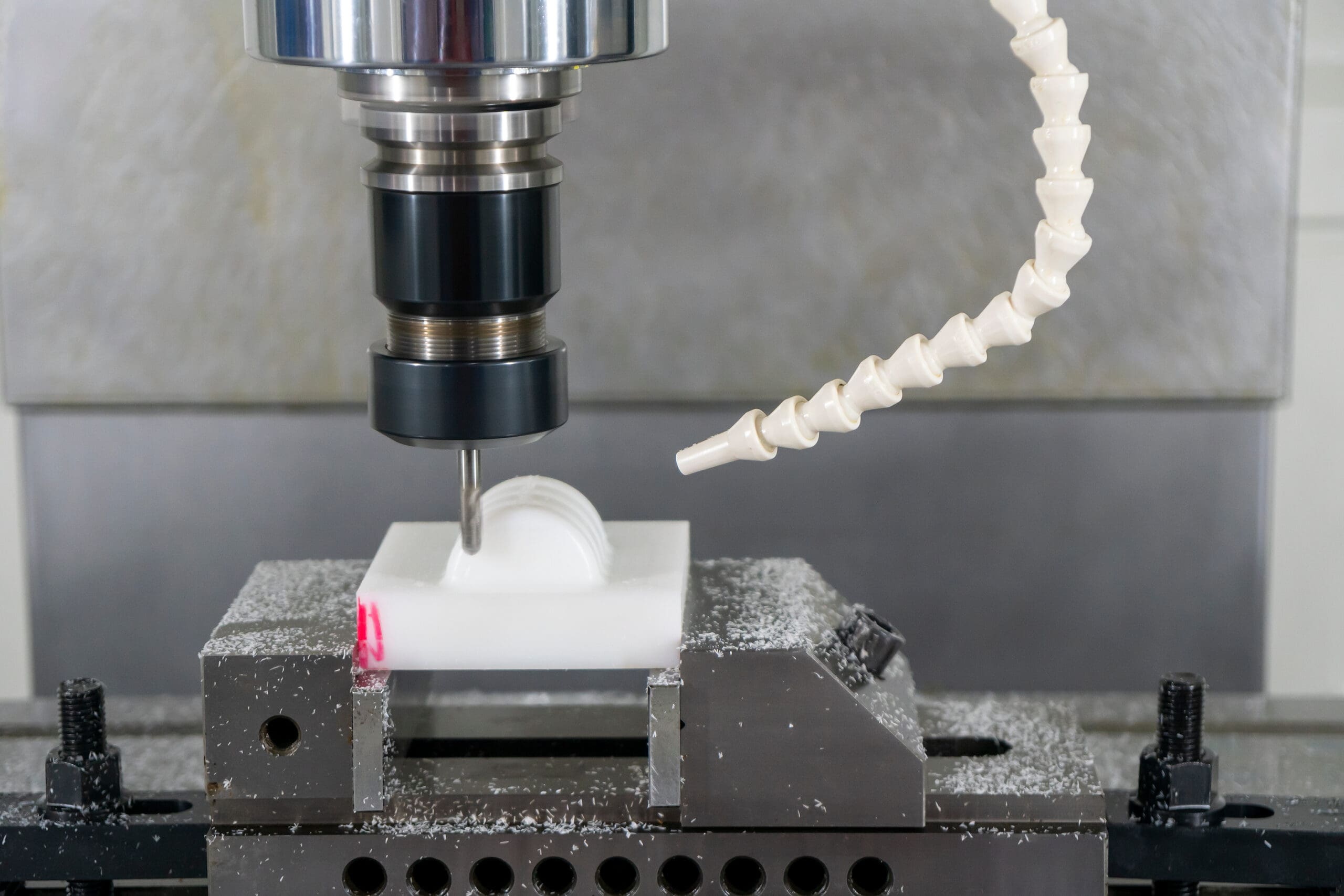Plastic machining custom parts for Product Developers
Plastics offer several advantages that make them well-suited for CNC machined parts:
- Versatility: Plastics come in a wide range of types, each with its own unique properties, such as ABS, PVC, nylon, acrylic, and polycarbonate. This diversity allows for selecting the most suitable material based on the specific requirements of the part.
- Ease of Machining: Many plastics have properties that make them easier to machine compared to metals. They typically have lower melting points, which reduces the risk of heat damage during machining. Also, plastics generally produce less wear on cutting tools, extending their lifespan.
- Lightweight: Plastics are generally lighter than metals, making them ideal for applications where weight is a concern, such as aerospace and automotive industries.
- Chemical Resistance: Certain plastics have excellent resistance to chemicals, making them suitable for use in harsh environments where exposure to corrosive substances is a concern.
- Electrical Insulation: Many plastics are electrically insulating, making them suitable for electrical and electronic components where conductivity could cause issues.
- Cost-Effectiveness: Plastics tend to be more affordable than metals, which can result in cost savings, especially for large-scale production runs.
- Design Flexibility: Plastics can be easily molded into complex shapes, allowing for intricate designs that might be difficult or impossible to achieve with other materials.
- Color Options: Plastics can be manufactured in a wide variety of colors, eliminating the need for additional painting or finishing steps.


